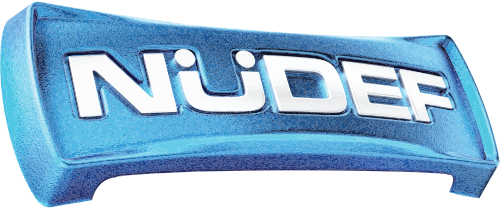Diesel Exhaust Fluid (DEF) is an important addition you need to know about if you’re new to driving a diesel truck or big machinery.
Beyond being a fluid for your engine, this important part is needed to cut down on pollution and meet today’s strict environmental standards.
In fact, DEF can cut nitrogen gas pollution by as much as 90%. This makes diesel engines much cleaner and in line with the rules.
To keep your diesel engine running easily and efficiently, this guide will help you understand what DEF is, how it works, and why you should care about it.
What is Diesel Exhaust Fluid (DEF)?
Diesel Exhaust Fluid, commonly referred to as DEF, is a specially formulated solution consisting of 32.5% high-purity urea and 67.5% deionized water. This clear and safe fluid plays an important role in reducing air pollution from diesel engines by significantly lowering nitrogen oxide (NOx) emissions.
Unlike gasoline engines, which naturally produce less NOx due to their lower operating temperatures, diesel engines require DEF to help achieve cleaner exhaust.
Since gasoline engines are quieter, they usually give off less NOx. Because of this, they don’t need extra technology to cut down on NOx pollution like diesel engines do, such as Selective Catalytic Reduction (SCR). DEF is the main part of SCR devices, which help diesel engines meet strict rules about the environment.
Interestingly, as awareness and regulations around emissions grow, the global market for DEF is expected to see a robust annual growth rate of 7.8% from 2022 to 2027. This trend reflects the increasing importance of DEF in the shift towards more environmentally responsible transportation.
So, if you’re driving or managing diesel-powered vehicles or equipment, understanding DEF and its role can be quite beneficial.
How Does DEF Work?
DEF works through a process called Selective Catalytic Reduction (SCR).
Here’s a simplified breakdown of the process:
Injection into Exhaust Stream: Diesel engine cleaner (DEF) is kept in a separate tank and sprayed into diesel vehicles.
Conversion of NOx: Once injected, it mixes with the exhaust gases and initiates a chemical reaction with nitrogen oxides (NOx), which are harmful pollutants.
Emission of Harmless Nitrogen and Water: Through this reaction, DEF effectively transforms NOx into harmless nitrogen gas and water vapor, which are safely emitted from the vehicle’s exhaust system.
The Significance of DEF
While DEF usage might seem like an additional hassle for diesel vehicle owners, it serves a much larger purpose. For instance, DEF compliance has become mandatory in many regions due to strict emissions regulations such as the Euro 6 in Europe and the EPA regulations in the United States.
Products like the NuDEF Diesel Exhaust Fluid Additive & Stabilizer are not replacements for DEF. Instead, they help preserve the quality of DEF by preventing crystallization and degradation, ensuring your system works efficiently.
This way, you’ll be doing your part for the environment and keeping your engine running smoothly.
What advantages does DEF provide?
It:
Reduces harmful NOx emissions, improving air quality
Helps diesel vehicles meet stringent environmental regulations
Supports the efficient operation of the SCR system
Contributes to the global movement towards cleaner transportation
Enhances overall vehicle performance and efficiency by ensuring optimal engine operation
FAQs on Diesel Exhaust Fluid
What vehicles require DEF?
Most newer diesel vehicles manufactured after 2010, including trucks, buses, and some passenger cars, require DEF to meet emissions standards.
How often does DEF need to be refilled?
The frequency of refilling depends on the vehicle type and mileage. On average, DEF consumption is roughly 2-3% of diesel fuel consumption.
Can DEF freeze, and if so, what happens?
Yes, DEF can freeze at temperatures below 12°F (-11°C). However, systems are designed to thaw and operate normally once the vehicle is started and warmed up.
Is DEF harmful to handle?
DEF is non-toxic and safe to handle, but contact with skin should be rinsed with water because it may cause irritation.
What happens if I run out of DEF while driving?
Most vehicles will provide a warning about low DEF levels. If ignored, the vehicle may experience reduced engine performance or may not restart until DEF is replenished.
How should DEF be stored?
DEF should be stored in a cool, dry place and kept out of direct sunlight to maintain its quality.
